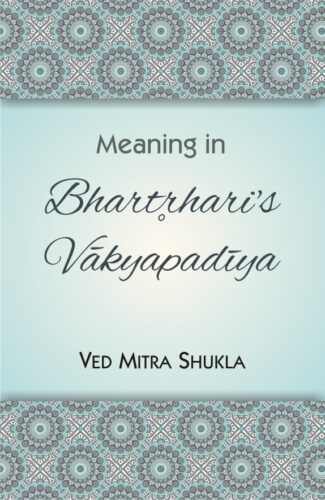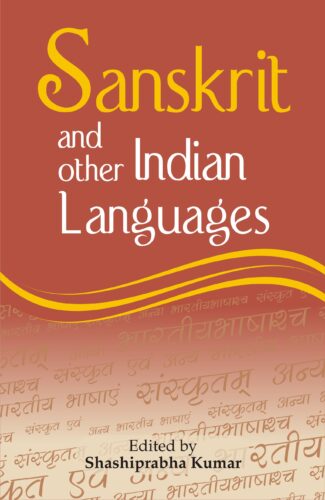

Sabdapramana...
Sabdapramana
Word and Knowledge in Indian Philosophy by: Purushottama BilimoriaWhat is the doctrine of Sabdapramana (word as knowledge)? What is involved in hearing words? Is the understanding (Sabdabodha) derived through hearing utterances direct or indirect? Or does it depend on certain other conditions for its validation? These are just some of the questions that have emerged within the Hindu philosophical tradition which this book tries to answer.
$30.00
ISBN: 9788124604328
Year Of Publication: 2008
Edition: 1st
Pages : xxx, 383
Bibliographic Details : Appendices; Bibliography; Indices
Language : English
Binding : Hardcover
Publisher: D.K. Printworld Pvt. Ltd.
Size: 23 cm.
Weight: 750
Shabdapramana or Testimony is a formidable doctrine within Indian philosophy. A thorough investigation of this thesis is long overdue. What is shabdapramana (word as knowledge)? What is involved in hearing words? Is the understanding derived through hearing utterances direct or indirect? Does this peculiarly linguistic understanding (shabdabodha) amount to knowledge (prama), or does it depend on certain other conditions for its truth? Further, what sort of theories of meaning, understanding, and knowledge would be required to ground a successful shabdabodha as prama,> need careful attention. It is sometimes said that Indian thinkers had no particularly interesting theory of understanding. The present work sets out to address these issues issues that have engaged traditional and modern thinkers alike. Based on the classic text, Advaita Vedanta-paribhasha of Dharmarajadhvarindra (17th century), the analysis and arguments extend to the views of and criticisms from the Nyaya, Purva Mimamsa and the grammarian/linguistic schools within Indian philosophy, with a treatment of similar concerns in Western philosophy. There is a compelling thesis here that should be taken seriously in any philosophy. Long discarded as a distinct source of knowledge in Western philosophy, Testimony might be fruitfully re-examined. This could lead to mutual dialogue between philosophy and religion, and pave the way for critical metaphysics.
Foreword (J.N. Mohanty)
Pre-word (K.T. Pandurangi)
Prologue (Stephen H. Phillips)
Acknowledgements
Abbreviations
Introduction
The problem — The approach — Aim and objectives — The thesis and its background — Ideality of language — Sruti — The dogma of sruti: apauruseya — The text and its author — Cit: consciousness in the knowing process — Dharmaraja and Navya-nyaya
1. Outline of the Argument for Sabdapramana
2. On Wards
Linguistic karana and the word — Karana, causal instrument for shabdabodha — What is a word?
3. On Meaning
Some general remarks on meaning — Indian theories of meaning — The linguistic functions of meaning
4. Shabdabodha: Psycholinguistics of Sentence Understanding
Shabdabodha — Samsargamaryada
5. The Karans
Akanksa — syntactic expectancy — Asatti — linguistic contiguity
6. The Phenomenological Karanas
Yogyata — semantic competency — Tatparya — intentionality
7. Shabdapramanya — Problem of Truth and Authority of the Word
Truth and falsity of shabdabodha — Authority and Praxis — aptabhava
Appendixes
Transliteration of AGAMA text from Vedantaparibhasha
Bibliography
Name index
General index









